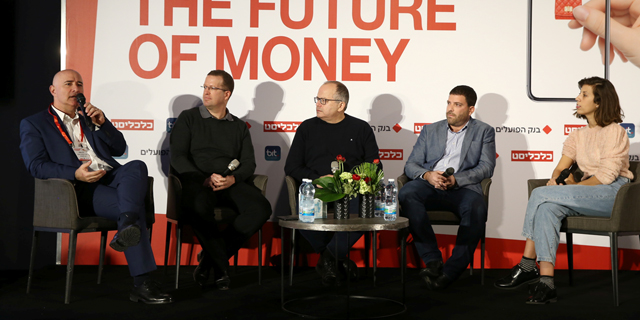
Future of Money
Plastic Will Slowly Be Replaced by Apps, Says Mastercard Israel CEO
Omer Unger spoke Monday at Calcalist’s The Future of Money conference in Tel Aviv
Tomer Hadar | 10:15, 14.01.20
Will credit cards eventually disappear? That was the question discussed Monday in a panel hosted by Calcalist reporter Raheli Bindman, as part of Calcalist’s The Future of Money conference, held in Tel Aviv in collaboration with Israel’s Bank Hapoalim. Speaking on the panel, the subject of which was a global look at the payment revolution, were Mastercard Israel Country Manager Omer Unger, Director of Business at Bank Hapoalim, Niv Polani, BlueVine Capital Inc. Co-Founder and Chief Technology Officer Nir Klar, and Tipalti Solutions Ltd. Co-Founder and CEO Chen Amit.
The payment market is like a graph with changing parts—plastic credit cards will not disappear in a day but will be slowly replaced by apps, Unger said, adding that people want a simple, cheap payment method and Israel needs to catch up with the rest of the world. “Those who know Mastercard know we do not manufacture the plastic. In the future it will be possible to save payment information on mobile phones, it is a global approach suitable for the tech giants and it also meets regulations. It is a revolution we are in the midst of.”
Trust is the most basic aspect, Polani said. “Mastercard deals with immense sums and has cyber experts to handle it. Switching out such bodies takes time, because gaining consumer trust takes time.” In Israel, the banks’ payment apps compete with credit card companies but everyone works based on the same infrastructure and it is not fully ready yet, he added. He further said that he has no doubt that eventually banks and fintech companies will collaborate, to benefit consumers.